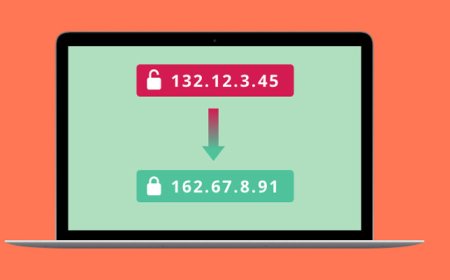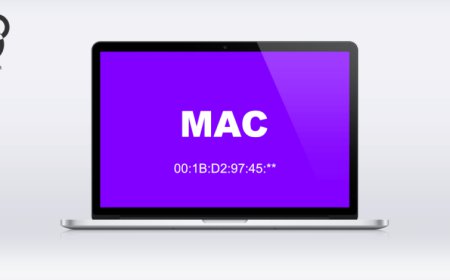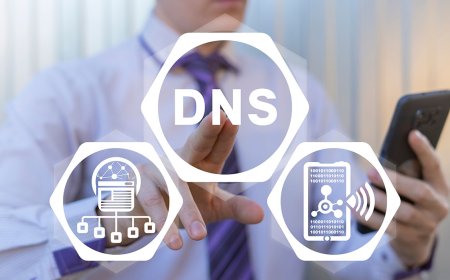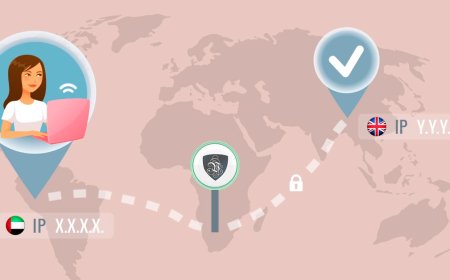What is a Proxy
Have you ever heard the word “proxy” and wondered what it means? In simple terms, a proxy is an intermediary between your device and the ...

Have you ever heard the word “proxy” and wondered what it means? In simple terms, a proxy is an intermediary between your device and the internet. It acts as a barrier between your computer or mobile device and the websites you want to access.
When you connect to a website directly, your IP address is exposed, which can reveal your location and other details related to your device. However, when you use a proxy server, it masks your IP address, allowing you to browse the internet anonymously.
In addition to providing anonymity, proxies offer other benefits such as improved security, faster browsing speeds, and access to geo-restricted content. Proxies are widely used by businesses and individuals alike for various purposes.
Businesses use proxies to monitor their employees’ internet usage, prevent data breaches, and perform market research. They also use proxies to scrape data from websites, which can help them gain valuable insights into their competitors’ strategies.
Individuals, on the other hand, use proxies for different reasons, including accessing geo-restricted content such as streaming services or social media platforms not available in their region. Proxies also provide a degree of privacy when surfing the web, especially when using public Wi-Fi networks.
There are different types of proxies, including HTTP proxies, SOCKS proxies, and SSL proxies, each with its own set of advantages and disadvantages. HTTP proxies are the most common type and are suitable for everyday use, while SOCKS proxies are more versatile and secure. SSL proxies offer the highest level of security but are slower than other types.
In conclusion, a proxy is an important tool for maintaining privacy and security when browsing the internet. Whether you’re a business owner, marketer, or casual internet user, using a proxy can help you achieve your goals more efficiently and safely.
The Benefits of Using a Proxy Server
If you’re one of the millions of people who use the internet daily, then the chances are that you’ve heard about proxy servers. These tools can be a real lifesaver for those who want to access restricted websites or protect their online privacy. In this article, we’ll be discussing the benefits of using a proxy server and how it can improve your online experience.
Firstly, using a proxy server can help you maintain your anonymity online. When you connect to the internet through a proxy server, your IP address is hidden behind the server’s IP address. This means that your online activities cannot be traced back to your device. If you’re someone who values their privacy, then using a proxy server is an excellent way to safeguard your personal information.
Secondly, proxy servers can help you overcome geo-restrictions. Many websites are region-locked, meaning that they can only be accessed from certain countries. However, by connecting to a proxy server located in that country, you can bypass these restrictions and access the content you need. This is particularly useful for expats or travelers who want to stay connected with their home country’s media.
Thirdly, proxy servers can improve the speed and performance of your internet connection. When you connect to the internet, your ISP assigns you an IP address. This IP address is shared with thousands of other users, which can slow down your internet speed. However, when you connect to a proxy server, you’re assigned a unique IP address, which can improve your internet speed and performance.
Finally, proxy servers can help you track your website’s performance. By connecting to a proxy server, you can simulate visits from different locations and test your website’s performance across different regions. This is important for businesses that operate globally and need to ensure that their website performs well in all markets.
In conclusion, using a proxy server has many benefits, including enhanced privacy, bypassing geo-restrictions, improving internet speed, and testing website performance. If you’re someone who values their online privacy and wants to improve their internet experience, then using a proxy server is definitely worth considering.
How to Use a Proxy Server
If you’re looking for a way to browse the internet anonymously, access restricted websites or surf the web without leaving a trace then using a proxy server can be a great option. In this article, we will explain what a proxy server is and how to use it.
What is a Proxy Server?
A proxy server acts as an intermediary between your device and the internet. When you request a webpage, the proxy server sends the request on your behalf, allowing you to remain anonymous. The website receives the request from the proxy server, not from your device. This means that your IP address is masked, and your online activities cannot be traced back to you.
How to Use a Proxy Server?
Using a proxy server is relatively easy. Here are the steps to follow:
Step 1: Choose a Proxy Server
There are many free and paid proxies available online. To find one, simply search for “proxy servers” in your preferred search engine, and choose one that meets your needs.
Step 2: Configure Your Device
Once you have chosen a proxy server, you need to configure your device to use it. This typically involves going into your internet settings and entering the proxy server’s details, including the IP address and port number.
Step 3: Start Browsing
With your device configured to use the proxy server, you can start browsing the internet. Keep in mind that different proxy servers may have different restrictions or limitations, so be sure to read the terms of use carefully before using one.
Conclusion
In summary, using a proxy server can be a useful tool for maintaining your online privacy and accessing restricted websites. By understanding what a proxy server is and how to use it, you can browse the web with greater peace of mind.
Proxy vs. VPN: What’s the Difference?
In today’s digital age, online privacy and security are of paramount importance. With cyber attacks and identity thefts on the rise, internet users must take measures to protect themselves. Two popular tools that people use to enhance their online security and privacy are proxies and VPNs.
A proxy acts as an intermediary between your device and the website you are trying to access. When using a proxy, your IP address is replaced with the IP address of the proxy server. This makes it harder for websites to track your location and other identifying information. However, proxies do not encrypt your internet connection, which means that your data can be intercepted by third parties.
On the other hand, a VPN, or virtual private network, encrypts your internet connection and routes it through a remote server. This means that your data is protected from prying eyes, even if you are connected to a public Wi-Fi hotspot. Additionally, VPNs hide your IP address, making it virtually impossible for anyone to track your online activity.
While both proxies and VPNs can help protect your online privacy and security, they have different strengths and weaknesses. Proxies are generally faster than VPNs since they only act as intermediaries, whereas VPNs encrypt your data, which can slow down your internet connection. However, VPNs offer more comprehensive protection since they encrypt your data and hide your IP address.
In conclusion, choosing between a proxy and a VPN depends on your specific needs. If you need fast access to geo-restricted content, a proxy may be the way to go. However, if you want comprehensive online security and privacy, a VPN is the better option. Regardless of which tool you choose, always make sure to use reputable providers and follow best practices for online safety.
Risks and Limitations of Proxy Servers
Are you concerned about your online security and privacy? Proxy servers might be a solution, but they also come with risks and limitations that you should be aware of.
Firstly, let’s clarify what a proxy server is. In simple terms, it’s a server that acts as an intermediary between your device and the internet. Instead of directly connecting to a website, your requests go through the proxy server, which then forwards them on your behalf. This can help to hide your IP address and location, making it harder for websites and advertisers to track you.
However, there are risks associated with using proxy servers. Firstly, not all proxy servers are trustworthy. Some may be run by hackers or malicious actors who use them to steal data or install malware onto your device. Secondly, even if you use a legitimate proxy server, your traffic still goes through their servers, meaning that they can potentially see or intercept your data. This could include sensitive information such as login credentials or personal details.
Another limitation of proxy servers is that they can slow down your internet connection. Because your traffic has to go through an extra server before reaching its destination, it can take longer for websites to load and for you to perform tasks online.
Finally, some websites may block access to their content if they detect that you’re using a proxy server. This is because proxy servers can be used to bypass geographical restrictions, allowing users to view content that’s only supposed to be available in certain regions. If a website detects that you’re using a proxy server, they may block your access altogether.
In conclusion, while proxy servers can provide some benefits in terms of online security and privacy, they also come with risks and limitations that need to be taken into account. If you do decide to use a proxy server, make sure that you choose a reputable provider and understand the potential drawbacks.
Top Proxy Server Providers
Proxy servers are essential tools for anyone who wants to keep their online activities private and secure. They allow users to browse the internet anonymously by masking their IP address, encrypting their traffic, and hiding their location. However, not all proxy servers are created equal. In this article, we will review some of the top proxy server providers in the market today.
First on our list is NordVPN, a popular VPN provider that also offers a proxy service. With over 5,400 servers in 59 countries, NordVPN provides fast and reliable connections that are ideal for streaming and torrenting. Its proxy servers offer SOCKS5 and HTTP/HTTPS protocols as well as unlimited bandwidth and speed.
Another great option is ProxyRack, which provides both residential and datacenter proxies. The company has over two million residential IPs and over 40,000 datacenter proxies spread across more than 140 locations worldwide. Users can choose from rotating or static IPs based on their needs.
Next up is Smartproxy, a premium proxy provider that focuses on providing high-quality residential proxies. Smartproxy has over ten million residential IPs and supports multiple protocols such as SOCKS5, HTTP, and HTTPS. Its proxies are great for web scraping, social media automation, and geo-targeting.
Fourth on our list is Oxylabs, a provider that specializes in datacenter proxies. The company offers over two million dedicated proxies in over 82 locations worldwide. Oxylabs’ proxies support multiple protocols such as HTTP/HTTPS, SOCKS4, and SOCKS5, and are perfect for web crawling and SEO.
Finally, we have Luminati, a leading provider of residential proxies. The company has over 72 million residential IPs worldwide and provides access to real devices such as smartphones, desktops, and tablets. Luminati’s proxies have multiple features such as Geo-targeting, ASN targeting, and ISP targeting.
In conclusion, choosing the right proxy server provider is crucial for ensuring online privacy and security. We hope that this article has provided you with valuable insights into some of the top proxy server providers in the market today.
Common Proxy Server Errors and Troubleshooting
Proxy servers play a crucial role in ensuring secure and confidential communication between a client and a server. They act as an intermediary between the two, forwarding requests and responses while masking the user’s IP address. Proxy servers also help in optimizing network performance by caching frequently accessed web content.
However, despite their importance, proxy servers can sometimes come across errors that may disrupt their functioning. In this article, we’ll discuss some of the common proxy server errors and how to troubleshoot them.
One of the most frequent proxy server errors is the “502 Bad Gateway” error. This error usually occurs when the server acting as a gateway or proxy receives an invalid response from the upstream server. To resolve this issue, check whether the destination server is up and running and that there are no connectivity issues between the two servers.
Another common error is the “504 Gateway Timeout” error. This error occurs when the proxy server does not receive a timely response from the upstream server. The solution to this problem is to check the server logs for any indications of slow response times from the upstream server. It may be necessary to increase the timeout duration or optimize the server configuration to minimize delays.
The “407 Proxy Authentication Required” error is another common issue that occurs when the proxy server requires authentication credentials to access certain websites. To fix this, ensure that you have entered the correct username and password in the proxy server settings.
Lastly, the “408 Request Timeout” error occurs when the client takes too long to send a request to the proxy server. To solve this problem, ensure that the client’s connection is stable and that there are no issues with the ISP’s network.
In conclusion, proxy server errors can significantly affect network performance and security. By understanding and troubleshooting these common errors, you can ensure seamless and secure communication between clients and servers.












